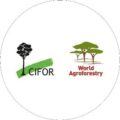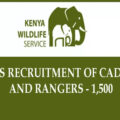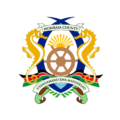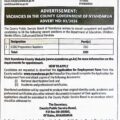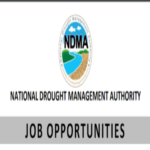
NATIONAL DROUGHT MANAGEMENT AUTHORITY
JOB DESCRIPTION: VACANCIES AT NATIONAL DROUGHT MANAGEMENT AUTHORITY
Introduction:
Welcome to the National Drought Management Authority (NDMA)! We’re dedicated to ending drought emergencies in Kenya through strategic coordination and proactive measures. As we expand our team, we’re excited to announce multiple vacancies for various positions. If you’re passionate about making a difference and have the skills to drive positive change, explore our opportunities below.
Position Overview:
1. Deputy Director, Drought Management Coordination (7 Posts):
As Deputy Director, Drought Management Coordination at NDMA, you’ll play a crucial role in overseeing and coordinating activities related to drought risk management. This leadership position requires strategic planning, stakeholder engagement, and operational management skills to mitigate drought impacts effectively.
2. Drought Management Coordination Officer II (5 Posts):
As a Drought Management Coordination Officer II, you’ll support the implementation of drought response plans and strategies. This role involves working closely with stakeholders to enhance drought preparedness and response efforts at regional and county levels.
Key Responsibilities:
- Lead and coordinate drought management initiatives in alignment with NDMA’s objectives.
- Develop and implement comprehensive drought response plans to mitigate risks and minimize impacts on affected populations.
- Foster collaboration with government agencies, NGOs, and community-based organizations to enhance drought resilience.
- Provide technical guidance to regional and county-level drought management teams.
- Monitor and evaluate the effectiveness of drought response interventions and recommend adjustments as needed.
- Represent NDMA in meetings and forums related to drought management and resilience-building initiatives.
Requirements:
- Bachelor’s degree in Environmental Science, Disaster Management, or related field. Master’s degree preferred.
- Minimum 7 years of experience in drought management or emergency response, with at least 3 years in a supervisory role.
- Strong leadership, communication, and interpersonal skills.
- Knowledge of Kenyan policies and frameworks related to disaster risk management.
- Proficiency in MS Office and other relevant software.
How to Apply:
Interested applicants are invited to submit their applications to hr@ndma.go.ke. Please include a cover letter, detailed CV, copies of certificates & testimonials, with the title and Reference number of the position clearly indicated in the email subject line. Additionally, applicants must fill out the Bio-data form available on our website. Applications without a completed Bio-data form will be rejected.
Closing Date: All applications must be received by 9th April, 2024, by 5:00 pm.
Equal Opportunity Employer:
NDMA is committed to diversity, equity, and inclusion. Persons with disabilities, marginalized individuals, and minorities are encouraged to apply.
No Application Fee:
NDMA does not charge any fee for these positions. Any form of canvassing will result in disqualification.
JOIN OUR TALENT NETWORK
Don’t see a fit at this time?
Don’t worry. Join our Talent Network and get notified about the latest opportunities. Join Now
Follow JOBS-HUB.ORG channel on WhatsApp: JOIN NOW!
MORE JOBS
SAMPLE COVER LETTER FOR A DEPUTY DIRECTOR, DROUGHT MANAGEMENT COORDINATION
[Your Name]
[Your Address]
[City, State, Zip Code]
[Your Email Address]
[Your Phone Number]
[Date]
Chief Executive Officer
National Drought Management Authority
P. O. Box 53547 00200
NAIROBI, KENYA
Dear Hiring Manager,
I am writing to express my interest in the position of Deputy Director, Drought Management Coordination as advertised by the National Drought Management Authority (NDMA). With a solid background in environmental science and extensive experience in drought management and emergency response, I am confident in my ability to contribute effectively to your team and make a positive impact on drought resilience efforts in Kenya.
During my career, I have successfully led various drought management initiatives, including the development and implementation of comprehensive response plans, stakeholder engagement strategies, and capacity-building programs. My strategic planning skills, coupled with my ability to navigate complex challenges and foster collaboration among diverse stakeholders, have enabled me to achieve tangible results and drive sustainable change in drought-affected communities.
I am particularly drawn to NDMA’s mission to end drought emergencies in Kenya and its commitment to promoting diversity, equity, and inclusion in the workplace. I am eager to bring my passion for environmental sustainability and my dedication to serving vulnerable populations to your organization.
Please find attached my CV for your review. I look forward to the opportunity to discuss how my skills and experiences align with the needs of NDMA. Thank you for considering my application. I am excited about the possibility of contributing to your team and making a meaningful difference in drought management efforts.
Sincerely,
[Your Name]
Possible Deputy Director, Drought Management Coordination Interview Questions With Answers:
- Question: Can you describe your experience in leading drought management initiatives? Answer: Certainly. In my previous role as [Your Previous Position], I was responsible for spearheading the development and implementation of comprehensive drought response plans. I worked closely with stakeholders to identify vulnerabilities, assess risks, and prioritize interventions to mitigate drought impacts effectively.
- Question: How do you approach stakeholder engagement and collaboration in drought management? Answer: I believe in fostering inclusive and participatory processes that involve all relevant stakeholders, including government agencies, NGOs, local communities, and vulnerable groups. By building trust, promoting dialogue, and leveraging collective expertise, we can develop holistic solutions that address the diverse needs and perspectives of stakeholders.
- Question: Can you provide an example of a successful drought resilience project you have led? Answer: One notable project I led involved the establishment of community-based early warning systems in drought-prone regions. By empowering local communities with the tools and knowledge to monitor weather patterns and assess risks, we were able to enhance early detection and response capabilities, ultimately reducing the impact of droughts on livelihoods and food security.
- Question: How do you stay updated on emerging trends and best practices in drought management? Answer: I actively engage in professional development opportunities, such as attending workshops, conferences, and training sessions related to disaster risk management and climate change adaptation. I also stay informed through networking with peers, conducting research, and following reputable sources of information in the field.
- Question: How do you handle conflicting priorities and resource constraints in drought response efforts? Answer: Prioritization and resource optimization are essential aspects of effective drought management. I prioritize actions based on their potential impact and feasibility, taking into account available resources and stakeholder input. I also advocate for innovative approaches and partnerships to leverage additional resources and maximize outcomes.
- Question: Can you discuss your experience in representing organizations at high-level meetings and conferences? Answer: Throughout my career, I have had the opportunity to represent organizations at various national and international forums, including conferences, workshops, and inter-agency meetings. I approach these engagements with professionalism and diplomacy, ensuring that key messages are effectively communicated and that stakeholder interests are represented.
- Question: How do you measure the effectiveness of drought response interventions? Answer: Evaluation and monitoring are critical components of the project cycle. I utilize both quantitative and qualitative indicators to assess the impact of drought response interventions, such as changes in vulnerability, resilience, and adaptive capacity. I also seek feedback from stakeholders to identify lessons learned and areas for improvement.
- Question: How do you promote inclusivity and equity in drought management initiatives? Answer: Inclusivity and equity are fundamental principles guiding my work. I actively engage marginalized and vulnerable groups in decision-making processes, ensuring that their voices are heard and their needs are addressed. I also advocate for gender-sensitive approaches and prioritize interventions that promote social justice and equality.
- Question: Can you describe a time when you had to adapt to unexpected challenges in a drought response operation? Answer: During a recent drought emergency, our team faced unexpected logistical challenges due to limited access to affected areas. In response, we quickly mobilized alternative resources and collaborated with local partners to overcome barriers and deliver essential relief supplies to affected communities. This experience taught me the importance of adaptability and resilience in crisis situations.
- Question: What motivates you to work in the field of drought management? Answer: As someone passionate about environmental sustainability and community resilience, I am driven by the opportunity to make a tangible difference in the lives of vulnerable populations affected by drought. I believe that through strategic coordination, innovation, and collaboration, we can build more resilient societies and create a sustainable future for generations to come.
We wish you the best in your application process and remind you that our website is committed to attracting and retaining the best employees from all races and backgrounds in our continued effort to become a better development partner. We are an equal employer and do not charge any application/recruitment fee, whether refundable or not.
To apply for this job email your details to hr@ndma.go.ke



